 Infrastructure and Budget Reconciliation Infrastructure and Budget ReconciliationWork continues in Congress related to investments to help our country recover from the COVID-19 pandemic. Many of these ideas have been discussed using the term infrastructure.
- Infrastructure means the buildings, roads, bridges, power lines, and other things our country needs to work every day. It can also include other systems that make our country work, like schools, healthcare, and other government services.
President Biden and House and Senate Democrats and Republicans have been meeting and negotiating what ideas can be passed with bipartisan support.
- Bipartisan: When people of both political parties (Democratic and Republican) work together on a law.
Announcements were made the week of June 21st about a deal on a bipartisan framework for an infrastructure package. When discussing this deal, Democratic Congressional leaders also shared their plan to move other ideas forward through a budget reconciliation measure.
- Budget Reconciliation is a tool that makes legislation easier to pass in the Senate; a reconciliation bill only needs a simple majority (51) in the Senate.
The need for two packages reflects the number of votes needed to pass something in Congress. While the House and Senate both have Democratic Majorities, the Senate majority is 10 members short of the 60 needed to pass proposals by regular order with only Democratic support.
- Senate Filibuster: Senate rules require three-fifths of the total number of senators (60) to vote to close debate on any bill. This means that opposition from at least 41 senators can defeat the bill by preventing a final vote.
A $400 billion investment in Home and Community Based Services (HCBS) proposed by President Biden in his American Jobs Plan is the largest priority of the disability community that was included in proposals. We now know that this priority will move forward as part of budget reconciliation. The Better Care Better Jobs Act ( S.2210, H.R. 4231) is the legislative language to pass this historic investment in HCBS.
Action Steps:
- The most critical need is for education and advocacy around Home and Community Based Services. Members of Congress need to be hearing continuously how important the $400 billion dollar investment is to their constituents.
It is fair to reach out to every member of Congress and share how important the Better Care Better Jobs Act (S.2210, H.R. 4231) is.
- It is true that this will move in a partisan manner (with only Democratic votes), but the issues related to HCBS and Medicaid will be important to all members of Congress going forward and education on this issue is valuable.
- If you have a Democratic Senator(s)
- Check to see if they are one of the 40 cosponsors
- If yes, thank them and share why it is so important to make sure the final package includes the $400 billion for HCBS.
- If they are one of the 10 that have not yet cosponsored, reach out and share why HCBS is important and offer to answer any questions as they consider becoming a cosponsor.
- Remember that in order for it to pass through budget reconciliation ALL 50 Democratic Senators will have to support.
- If you have a Democratic Representative
- Check to see if they are a cosponsor
- If yes, thank them and share why it is so important to make sure the final package includes the $400 billion.
- If they have not yet cosponsored, reach out and share why HCBS is important offer to answer any questions as they consider becoming a co-sponsor.
- The higher the number of cosponsors in the House, the greater the chance to keep ALL 50 in the Senate.
Extra ways to make an impact:
- Use social media to raise the importance of this legislation
- Use #BetterCareBetterJobs
- Share a personal story: Members of Congress and their staff from every state need to understand what HCBS mean to people in their state. AUCD is sharing these stories; we are looking to have stories to share from every state. Please send your story about HCBS to [email protected]
- Short is best (3-5 sentences)
- A picture helps
- Stories can come from people with disabilities, family members, allies and professionals working in these systems.
 Medicare Dental, Vision, and Hearing Medicare Dental, Vision, and Hearing
Representative Lloyd Doggett (D-TX) introduced the Medicare Dental, Vision, and Hearing Benefit Act of 2021 ( H.R. 4311). This bill would add coverage for oral health, vision, and hearing services to Medicare Part B. The Disability community has long advocated for these additions to support access to important health care services for low-income older adults and people with disabilities.
Plain Language:
- This bill would change Medicare to include dental, vision and hearing coverage.
What this means to you:
- These changes would support access to dental, vision and hearing care for low income older adults and people with disabilities.
Action Steps:
- Learn more:
- Email or call the Capitol Switchboard at (202) 224-3121 (voice) or (202) 224-3091(tty) and ask to be connected to your Representatives to share your thoughts on expanding Medicare coverage.
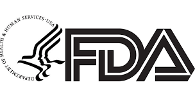 Abuse and Neglect Abuse and Neglect
A federal appeals court has overturned the Food and Drug Administration's ban on the use of electric shock devices on people with disabilities. In March of 2020, following years of pressure from the disability community the Food and Drug Administration (FDA) banned electrical shock devices used to discourage behavior in people with disabilities. The rule was first proposed on April 25, 2016. In the fall of 2018 and again in 2019 the FDA announced they intended to finalize the rule by December 2019. The the shock devices are only known to be in use one place in the U.S., the Judge Rotenberg Educational Center of Canton, Massachusetts, a residential school for people with autism and other psychiatric, developmental or mental disabilities. disabilities. Plain Language:
- A ruling allows the use of electronic shock to continue.
What this means to you:
- ESDs-which attach to the skin and allow another person to administer electric shocks-are again allowed to be used as a form of punishment and behavioral control.
Action Steps:
 Surprise Medical Billing Surprise Medical Billing
The U.S. Departments of Health and Human Services (HHS), Labor, and Treasury, and the Office of Personnel Management, issued "Requirements Related to Surprise Billing; Part I," an interim final rule that will restrict out of pocket costs to consumers from surprise billing and balance billing. The 60 day comment period is now open with the Consumer protections in the rule scheduled to take effect beginning on January 1, 2022.
- A surprise medical bill happens when a person with health insurance gets care from an out-of-network provider. This can happen in an emergency or because some health care settings have a mix of in-network and out-of-network providers. Insurance usually does not cover the entire out-of-network cost, leaving the person with higher costs than if they had been seen by an in-network provider.
Plain Language:
- New rules will try to limit the unexpected medical bills people who have health insurance get.
What it means to you:
- Public comments on the proposed changes to out-of-network billing are now being accepted. This is a chance to share the impact on individuals with disabilities.
Action Steps:
- Learn More
- Prepare to make comments
- Use our plain language guide to submit comments.
- Written comments must be received by 5 p.m. 60 days after display in the Federal Register to be considered. As of writing the rule has not been entered into the Federal Registry and thus comment period is not yet open.
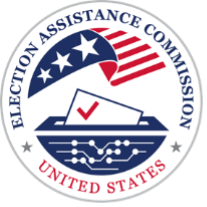 Voting Voting The U.S. Election Assistance Commission (EAC) held a roundtable discussion July 7, 2021 on a new report, Disability and Voting Accessibility in the 2020 Elections, released by the EAC and the Program for Disability Research at Rutgers University. The report highlights new data on turnout for citizens with disabilities from the federal government's Current Population Survey Voting Supplement for November 2020. A recording of the discussion is available on the EAC YouTube Channel. Plain language:
- A new report talks about how voting can be more accessible for people with disabilities.
What this means to you:
- There can be many barriers to voting for people with disabilities. Elevating the most current data and reporting can help as state and federal voting legislation is considered.
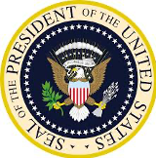 Biden-Harris Administration Biden-Harris Administration
On July 6th , the U.S. Department of Education announced additional Biden Administration appointments. Appointment of particular note to the disability community include:
Katy Neas, Deputy Assistant Secretary, Office of Special Education and Rehabilitative Services
Katy Neas previously served as senior vice president of public affairs at APTA (American Physical Therapy Association). A long-time disability rights ally, she began her career on the Senate Subcommittee on Disability Policy during the development and enactment of the Americans with Disabilities Act. A graduate of Georgetown University, she hails from Des Moines, Iowa.
Plain language:
- President Biden continues to appoint people who will serve our country during his Administration.
What it means to you:
- The transition creates new leaders in federal agencies. The work of these agencies will create changes in federal policy that impacts the lives of people with disabilities and their families.
Action steps:
- Continue to follow news from the Biden Administration at whitehouse.gov.
 American Rescue Plan American Rescue Plan
On March 11th, President Biden signed the American Rescue Plan Act ( P.L.117-2). The $1.9 trillion legislation provided additional relief to address the continued impact of COVID-19 on the economy, public health, state and local governments, individuals, and businesses. Part of the plan lowers the cost of health insurance by opening more pathways for Americans to obtain affordable and comprehensive health coverage. Starting July 1, 2021, people who received unemployment for at least one week this year are eligible for $0 premium plans and the highest level of cost-sharing reductions. Plain language:
- People who need health insurance can now sign up on Heatlhcare.gov. If you received unemployment you may need to submit a new application or update their existing application to save the most money possible for the rest of 2021.
Action steps:
- If you need health insurance, go to Healthcare.gov. If you have received unemployment you may be able to save additional money. If you already have coverage, help your family and friends sign-up and enroll.
- Learn more about the American Rescue Plan:
- Learn more about implementation:
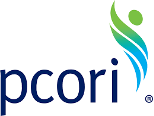 Opportunity for Input: PCORI Opportunity for Input: PCORI
In 2020, the Patient-Centered Outcomes Research Institute (PCORI) started an initiative to identify new priorities to direct its work. PCORI's Board of Governors approved the posting for public comment of five proposed National Priorities for Health developed in consultation with stakeholders, advisors, and experts. The five priorities are:
- Increase Evidence for Existing Interventions and Emerging Innovations in Health
- Enhance Infrastructure to Accelerate Patient-Centered Outcomes Research
- Advance the Science of Dissemination, Implementation, and Health Communication
- Achieve Health Equity
- Accelerate Progress Toward an Integrated Learning Health SystemPlain language:
PCORI (a group that funds research on how to make healthcare better) is working on a new plan for their work. They want to hear from you about what you need and any ideas you have.
Plain language:
- PCORI (a group that funds research on how to make healthcare better) is working on a new plan for their work. They want to hear from you about what you need and any ideas you have.
What this means to you:
- The Patient-Centered Outcomes Research Institute (PCORI) is a key funder in research that priorities the needs of people. They are seeking input on their plans; this is a chance to raise the needs of people with disabilities.
Action steps:
- Read more about the priorities
- Submit public comments on the priorities by August 27
- Attend a webinar overviewing the priorities June 29 at 2:30 pm Eastern. Click here to sign up for the webinar.
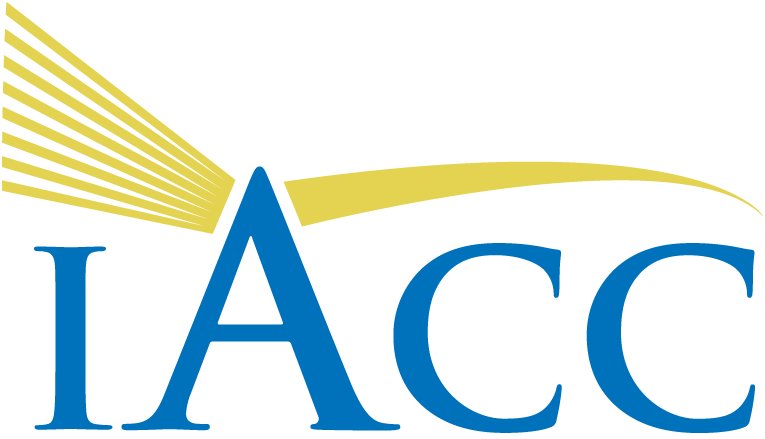 Interagency Autism Coordinating Committee Interagency Autism Coordinating Committee
The Interagency Autism Coordinating Committee (IACC) is a Federal advisory committee that coordinates federal efforts and provides advice to the Secretary of Health and Human Services on issues related to autism spectrum disorder (ASD). Through its inclusion of both federal and public members, the IACC helps to ensure that a wide range of ideas and perspectives are represented and discussed in a public forum. The committee will reconvene on July 21st and 22nd, 2021, to begin a new session. Staffing changes include:
- Susan A. Daniels, Ph.D.will serve as Acting National Autism Coordinator beginning on July 1, 2021, and until a permanent successor is named
- New Committee membership can be found here
Plain Language:
- New members (including more people with disabilities and their family members) will start their work on the Interagency Autism Coordinating Committee (IACC) this month.
Action steps:

Vaccine Distribution
Because of the elevated risk of serious illness and death due to COVID-19, vaccination is critically important for people with disabilities. However, we know that many people with disabilities and the direct care staff that support them continue to face significant barriers to getting vaccinated. While the nation did not reach President Biden's goal of 70% of eligible adults receiving at least one dose of the vaccine by July 4th, work at the federal, state, and local levels continues.
Plain language:
- Work is happening to make sure all people can get the COVID-19 vaccines. If you have been vaccinated there are now fewer restrictions.
What it means to you:
- Work is happening to make sure everyone can get their COVID-19 vaccine and feels safe doing so.
Action steps:
- Vaccine Resources and Information
- The National Center on Disability in Public Health has new resources to help support persons with disabilities, their family members, and the professionals who support them get vaccinated:
- Disability Information and Access Line (DIAL) is now available to help people with disabilities get vaccinated. The DIAL's trained staff is standing by to:
- Help find local vaccination sites
- Assist with making vaccination appointments
- Connect callers to local services - such as accessible transportation - to overcome barriers to vaccination
- The hotline also can provide information and resources to answer questions and address concerns about the vaccines and can connect callers to information and services that promote independent living and address fundamental needs, such as food, housing, and transportation.
- The Public Health Communications Collaborative has a new section of their "Answers to Tough Questions about Public Health" on the Delta and other variants of COVID-19 to support your vaccine efforts.
- The VaxFactsDDNY Project at the Rose F Kennedy UCEDD and the Strong Center for Developmental Disabilities developed a survey to learn about parent preferences for getting vaccines for their child with a disability. This information will be used to address inequity in vaccine information and access. There is a choice to complete the survey in English, Spanish, Korean, Chinese, Bengali, or ASL.
- HHS We Can Do This COVID-19 public education campaign has a Toolkit for People with Disabilities, which includes resources on COVID-19 vaccination for people with disabilities and the organizations and individuals who support them.
- Share #AUCDSleeveUP messaging on Twitter, Facebook, Instagram
- Check out the COVID-19 vaccine resources from the Center for Dignity in Healthcare for People with Disabilities, and consider sharing them with your state or local health departments.
 AUCD Policy Talk AUCD Policy Talk"As is often the case, the disability community is clearly impacted by the realities of how interdependent we are. I am kept up at night worrying about the dangers low vaccination rates pose to disabled people."
This week on #AUCDPolicyTalk, Rylin Rodgers, AUCD Policy Director, urges everyone to continue the push for COVID-19 vaccinations as a means of keeping members of the disability community safe.
 #AUCDSleeveUp Tuesdays with Liz Contest #AUCDSleeveUp Tuesdays with Liz Contest
We are excited to announce the new #AUCDSleeveUp Tuesdays with Liz Contest! We are looking for short videos from persons with disabilities, their family members, and other friends of the disability community sharing why you got the COVID-19 vaccine! Videos will be posted to AUCD social media and available for you and others to share with your own social media. The top three videos with the most likes, comments, and shares on social media will *win* AUCD gear and the person with the top video will also win an interview on a Tuesdays with Liz episode! Videos will be accepted until Friday July 16th and will be featured on the Tuesday with Liz YouTube Channel in this playlist.
Submit your #AUCDSleeveUp vaccine story today!
#AUCDSleeveUp TWL Contest Rules:
- Videos must be less than one minute long.
- Videos should show the face(s) of the person(s) speaking.
- Say your name, how you are a part of the disability community (person with a disability, family member, support professional), and why you got the COVID-19 vaccine. For example, "Hi, my name is Liz and I am a person with a disability. I got my COVID-19 vaccine because I want everyone to be healthy and to see our families and friends again."
- We ask that you communicate as clearly as possible, so that we can add captions.
- Have fun with it!
Did you know that Liz has a new YouTube Channel? You can help spread her message by:
|
